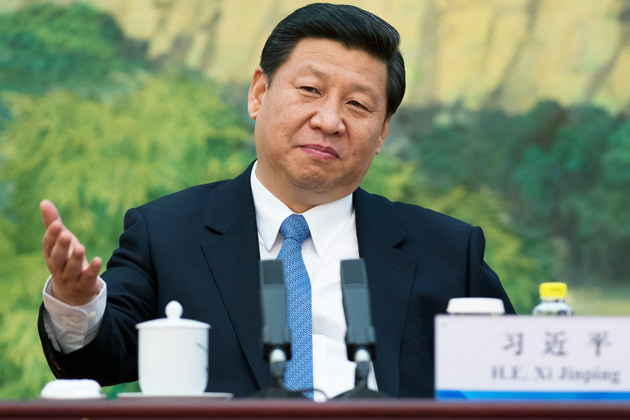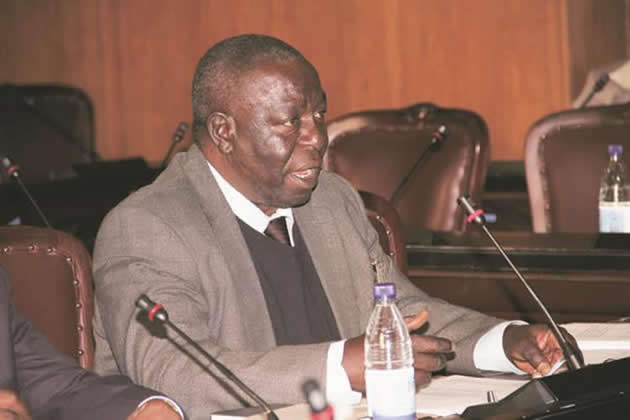Xi Jinping’s Independence Day message symbolic

 Lovemore Chikova China-Africa Focus
Lovemore Chikova China-Africa Focus
The congratulatory message sent by Chinese President Xi Jinping on Zimbabwe’s 37th Independence Day this week was significant in various ways. As it stands, China has remained an unwavering ally of Zimbabwe and has aspired to share its progressive path with the Southern African country. And the message sent by the Chinese President helped reaffirm that position. A number of world leaders also sent their congratulatory messages, but I found President Xi’s the most appealing.
There are many reasons for that, especially that it focused on what matters most — trade, economic and cultural relations.
These three are the pillars that define the relations between Zimbabwe and China, making them all inclusive as they concentrate on what benefits people from both countries.
That President Xi chose Zimbabwe’s grand occasion to re-confirm his progressive thoughts on the relations between the two countries made his remarks more apt.
There are many positives that have been generated by the relations between the countries.
A lot of Chinese investment has flown into Zimbabwe, with a lot of companies from the Asian giant having set up base here.
Trade volumes between Zimbabwe and China had reached $948 million as of September last year and were expected to have surpassed the $1 billion mark by the end of that year. China imports tobacco, cotton and various minerals from Zimbabwe, while local businesses have turned to the Asian economic giant for supplies of electronic products and other finished goods.
In his congratulatory message, President Xi said the independence celebrations were highly regarded, as China and Zimbabwe had long enjoyed deep traditional friendship and always treated each other with sincerity.
“On the occasion of the 37th anniversary of the Independence of the Republic of Zimbabwe, I wish to extend, on behalf of the Chinese Government and people as well as in my own name, to you and through you to the Zimbabwean Government and people, my sincere greetings and best wishes,” said President Xi.
“China and Zimbabwe have long enjoyed deep traditional friendship and have always treated each other with sincerity on an equal basis. Our two countries have all along extended mutual understanding and support to each other on the issues regarding core interests and major concerns.
“Our exchanges in trade, economic, cultural and other fields have yielded fruitful achievements. I always attach great importance to the development of China-Zimbabwe relations.
“I am ready to work together with you to continuously deepen our bilateral friendship and win-win cooperation across the field and lift our bilateral relations to new heights. I wish Zimbabwe prosperity and its people happiness.”
In 2014 and 2015, China reaffirmed its commitment to investing in Zimbabwe by announcing multi-billion dollar energy and infrastructure deals.
The deals, signed when President Mugabe visited China in 2014 and when President Xi came to Zimbabwe in 2015, have proved to be the toast for the progressive relations.
A number of the deals have already hit the ground, with the Kariba South Hydro Power project nearing completion.
In fact, the first generator from that project is expected to be put on line by the end of this year, while more generators will be up by the first quarter of next year.
The China Export and Import Bank is funding the expansion of Hwange Thermal Power Station that is expected to add more power to the national grid.
These two projects are important in that once they are completed, Zimbabwe will never experience a shortage of electricity.
The availability of electricity will obviously give confidence to investors, as they can then able to invest in any project without fearing interruption of their business due to power cuts.
Every country that aspires to industrialise has to ensure there is enough power, otherwise the dream will be futile.
A number of Chinese firms have indicated their desire to invest in special economic zones in Zimbabwe, especially after the recent passing of the Special Economic Zones Act. This will result in billions of dollars coming the Zimbabwean way, as the firms invest in areas that can help turnaround the economy.
A lot of technological transfer has been taking place between Zimbabwe and China in various fields. The recent partnership between Willowvale Motor Industries and Beijing Automobile International Corporation is one such example.
In the deal, the Chinese firm will bring in new technologies in the manufacture of vehicles, with the staff being retrained to upgrade their skills.
Many other projects that signify China’s commitment to assisting Zimbabwe are going on and at different stages.
In fact, relations between Zimbabwe and China have for long been dominated by win-win development co-operation.
Zimbabwe’s Look East policy helped unlock and expand the bilateral and trade relations with China.
The policy was important in that it resulted in the Zimbabwean government focusing more energy on enhancing relations with China for the benefit of the economy. People-to-people and cultural exchanges have been flourishing between China and Zimbabwe.
According to the Government, Chinese tourists coming to Zimbabwe rose by 32 percent in the first half of last year and continue to increase.
The Confucius Institute in Zimbabwe, set up in 2007, is admitting more than 700 Zimbabwean students every year.
In the education sector, the Chinese government provides scholarships to Zimbabwean students to study in China each year. Also, thousands of Zimbabweans have taken training courses in China in recent years under the Chinese Government sponsorship.
The extraordinary development of China-Zimbabwe relations as hailed by President Xi over the past years could not have been achieved without the concerted efforts from both sides.
It shows that both countries value sincerity and friendship, adhere to the basic principles of independence and mutual respect and pursue the common mission to grow the economy and improve people’s livelihood.
In fact, the relations can be explained by historical legacies and the practical economic benefits on both sides.
Zimbabwe has always been China’s strongest ally in Africa. The strengthening of Zimbabwe’s economy will help further enhance such relations and this is reflected in President Xi’s congratulatory message.
During the liberation war, China supported Zimbabwe’s freedom fighters with both war material resources and training.
In fact, some of the top fighters during that war horned their military skills in China at such institutions as the Perking Military Academy.
This help from China shaped the political future of Zimbabwe.
China has always stood by Zimbabwe since then, even in the face of adversities.
When Zimbabwe embarked on the land reform programme at the turn of the millennium, China supported the country’s sovereignty.
On a number of occasions, Western countries attempted to punish Zimbabwe for the land reform at the United Nations, but China stood out by using its veto power to reject the unjustified action.
Feedback: [email protected]










Comments